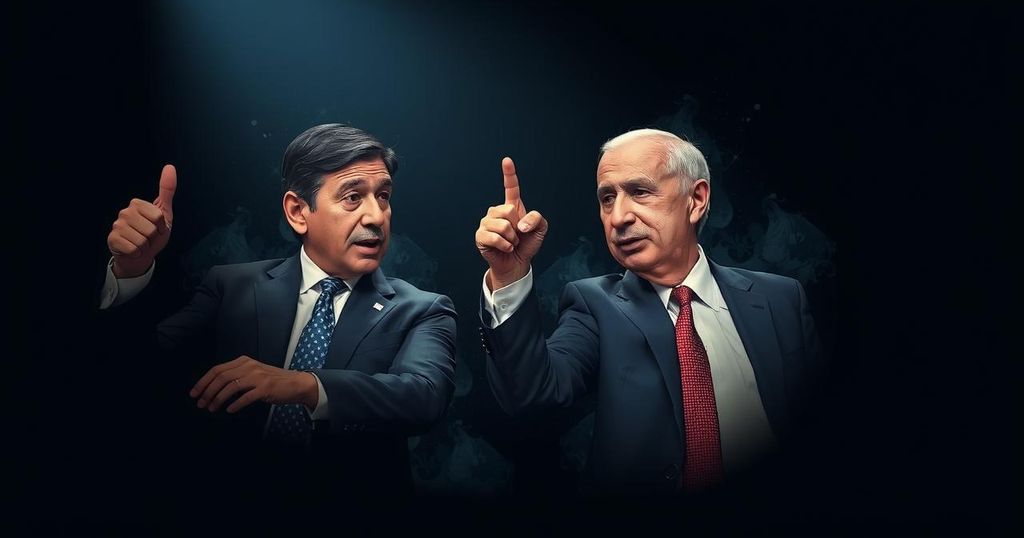Uruguay’s presidential runoff pits Álvaro Delgado and Yamandú Orsi against each other, following a closely fought first vote. The Broad Front, gaining 44%, faces Delgado’s National Party at 27% amid concerns over crime and economic issues. Voter apathy reflects a broader consensus on policies, distinguishing Uruguay’s political climate from populist trends elsewhere. Key issues include crime prevention and economic reforms as the election highlights the strength of its democratic practices.
Uruguay’s recent presidential election has emerged as a competitive race, culminating in a runoff vote between Álvaro Delgado of the National Party and Yamandú Orsi representing the leftist coalition known as the Broad Front. The second round follows a first vote in which no candidate achieved a majority. With the Broad Front, which governed Uruguay for 15 years, gaining 44% of the initial vote compared to the National Party’s 27%, Delgado benefits from the support of conservative allies, particularly the Colorado Party, which collectively secured 20%. Polls indicate a tight race, with a significant portion of voters still undecided.
The campaigns of both candidates have been characterized by a lack of distinctiveness, leading to feelings of apathy among voters. The election highlights important themes such as social spending and income inequality, yet lacks the intense anti-establishment sentiments seen in other nations. According to Nicolás Saldías, a senior analyst with the Economist Intelligence Unit, the issues at stake do not evoke existential fears among voters.
Crime has emerged as a central concern, prompting both candidates to propose solutions. Delgado favors stringent law enforcement measures, including the construction of a new maximum-security prison, while Orsi advocates for community-oriented crime prevention strategies. Delgado’s campaign positions him as the continuation of current President Luis Lacalle Pou’s policies. With an impressive economic outlook and high approval ratings for Lacalle Pou despite previous scandals, Delgado’s approach is backed by a commitment to market-friendly reforms.
On the other hand, Orsi, a former history teacher, aspires to establish a “new left” in Uruguay without implementing drastic changes. He echoes the legacy of former President José “Pepe” Mujica, advocating for investment incentives and necessary social security reforms while acknowledging the challenges posed by a conservative-dominated Congress. Mujica’s recent voting participation underscores the importance of democratic engagement in Uruguay.
This election serves as a testament to Uruguay’s established democratic practices, contrasting sharply with political climates in other nations. As both candidates remain neck and neck in the polls, the outcome will undoubtedly shape the future political landscape of the nation and address pressing social issues.
The Uruguayan presidential elections feature Álvaro Delgado from the conservative National Party and Yamandú Orsi from the Broad Front, a leftist coalition. The elections followed a previous vote in which neither candidate secured a majority, leading to this runoff. Historical context is vital, as the Broad Front previously governed the nation and implemented progressive reforms. Concerns over crime and economic policies dominate discussions, reflecting the electorate’s pressing issues during this pivotal electoral period.
In conclusion, Uruguay’s presidential runoff illustrates a competitive and engaging electoral process shaped by significant social concerns. With voters’ attention divided between two candidates offering different approaches to crime and economic policies amid historical political contexts, this election underscores Uruguay’s robust democracy. The outcome will have lasting implications for the country’s administrative direction and social policies.
Original Source: www.voanews.com






